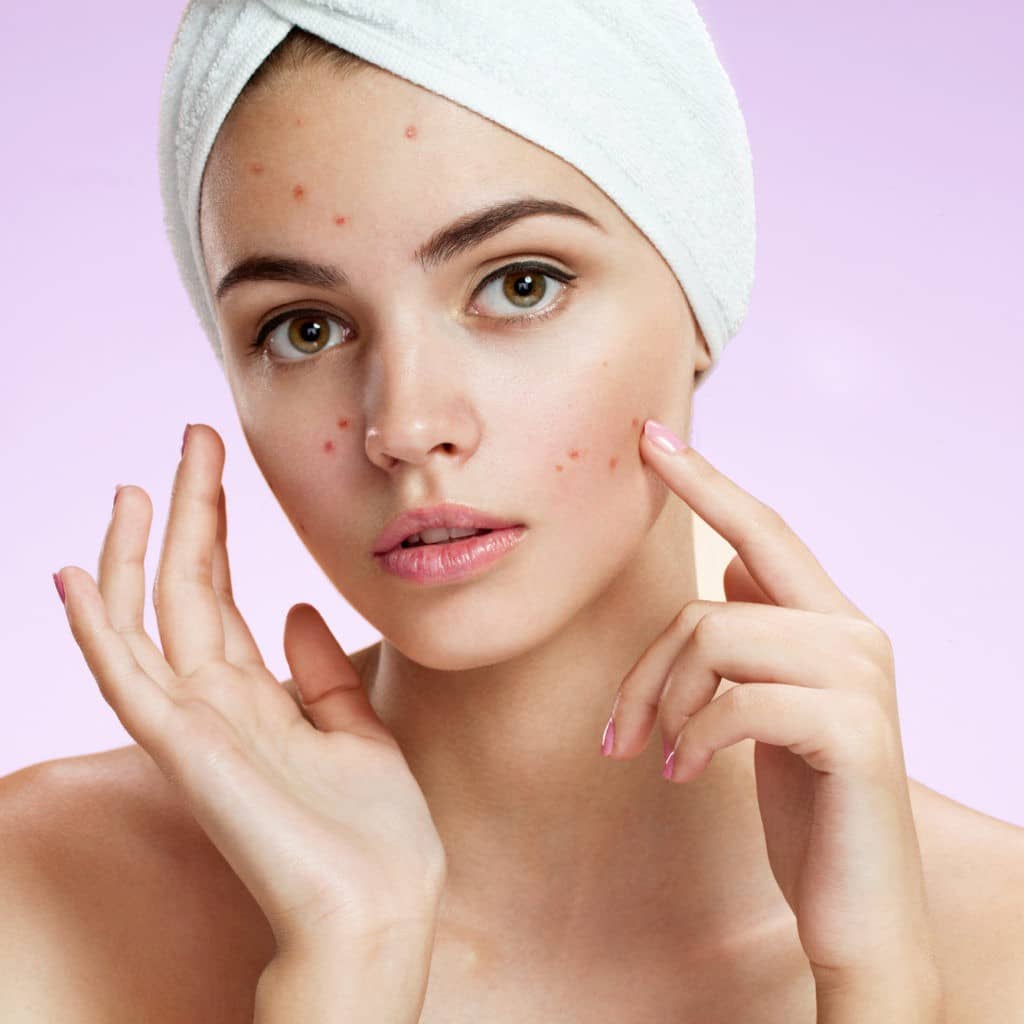Acne is one of the most commonly-occurring skin problems among people of all ages. Studies
indicate that 8 out of 10 people develop acne during a certain period of their lives. It is an inflammatory skin disease, that usually results from changes in the skin pores and a disorder of the sebaceous glands associated with them. These glands are spread particularly in the skin of the face, the back and the chest, making these areas more prone to acne.
Its causes:
- Hormonal changes: the sebaceous glands in the skin operate under the control of sex hormones such as androgens and testosterone, which is why the appearance of acne is associated with puberty for both sexes, as well as the menstrual period and pregnancy in females.
- Genetics: studies confirm that the patient’s family history is closely related to the occurrence of other cases of acne in the family, which confirms that genetics are a part of the etiology.
- Infection: Propionibacterium, an anaerobic bacterium, plays animportant role in the development of acne.
- Side effects of some medications: taking certain medications such as steroids, lithium, estrogen, androgen, and vitamin (B12) as well as the use of topical creams containing steroids.
- Psychological factor: the patient’s psychological state directly affects the appearance and severity of acne. Tension, anxiety, and negative emotions lead to higher androgen levels in the body and hence more severe acne.
- Having endocrine disorders such as polycystic ovarian syndrome (PCOS) or Cushing’s syndrome.
- Using cosmetic products that contain oils can trigger acne.
- Touching the face repeatedly causes frictional acne.
- Environmental changes: for example, when traveling, weather conditions especially humidity in the atmosphere, as well as mineral water levels in the area, lead to the appearance or irritation of acne.
- Ingesting muscle building steroids or protein powders (synthetic proteins).
Its types:
- Non-inflammatory pimples: they occur in the form of white or black heads that appear as a result of clogged pores in the skin due to the accumulation of oils and dead cells. This type of acne is considered the simplest type.
- Inflammatory pimples: often caused by the occurrence of scarring on the skin, and is divided into several types according to its severity and depth, that include papular, nodular, and cystic acne.
Its Treatment:
Acne treatments do not usually give immediate results, but those begin to appear after 4-8 weeks of commencing therapy. Sometimes acne occurrence increases in the first period of treatment before improvement appears.
- Topical treatments that reduce fat secretion, eliminate germs and get rid of dead skin cells.
- Antibiotics: these reduce the bacteria and prevent their production.
- Acid peeling: such as cisolic or glycolic acids that work to dissolve the stratum corneum to open closed pores as well as kill germs.
- Anti-aldosterone (Spironolactone) due to its ability to block androgen receptors.
- Complex treatments: studies confirm that combining more than one type of treatment gives more effective results than monotherapy.
- Retinoids (Isotretinoin): this drug is considered very effective for the treatment of advanced cases of acne, and the treatment course lasts for several months. After the end of treatment, 80% of patients report improvement, 50% recover completely, and 20% of people need another course of treatment.
- Oral contraceptive pills: regularly taking oral birth control is effective in some cases for the reduction of the activity of sebaceous glands in the skin and thus help control acne.
Tips for dealing with acne:
- Wash the affected area twice a day with a suitable medical wash.
- Do not use cosmetic products that are high in oils.
- Avoid touching or scratching acne with nails, as this can cause permanent pimples.
- Avoid being out in the sun without using sunscreen.
- Avoid building muscle stimulants.
- Do not take any type of treatment without a prescription.
- Remove makeup before bed, taking into account the use of appropriate makeup products for your skin type.
- Eat healthy foods and reduce foods high in sugar and fat.
While adhering to these tips, the occurrence of acne blisters decreases and may
even diminish. We wish health and beauty upon everyone!

